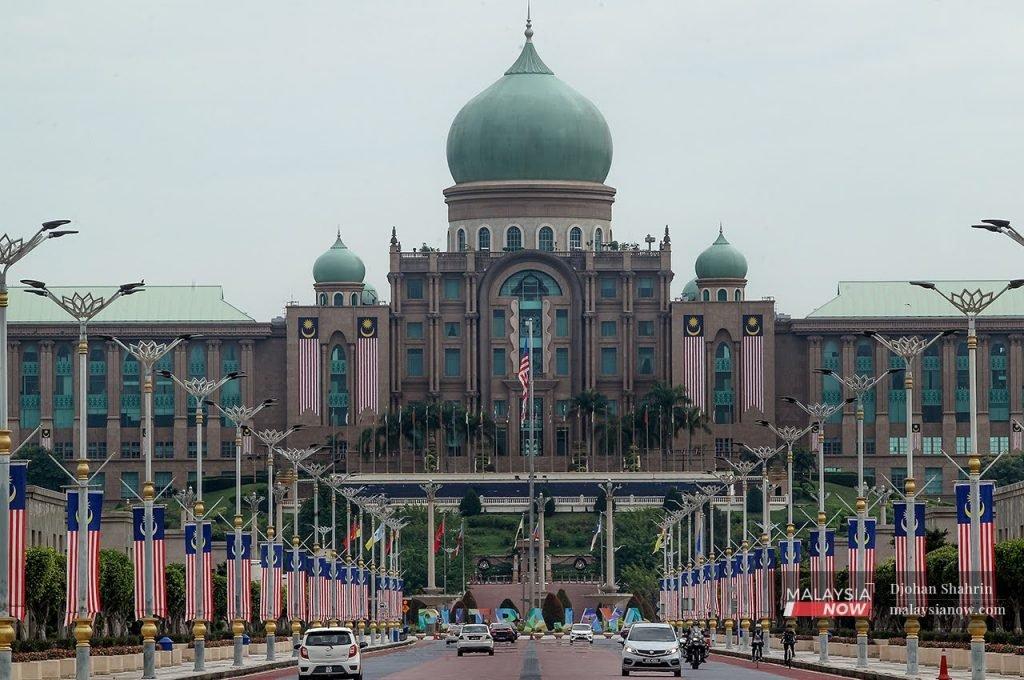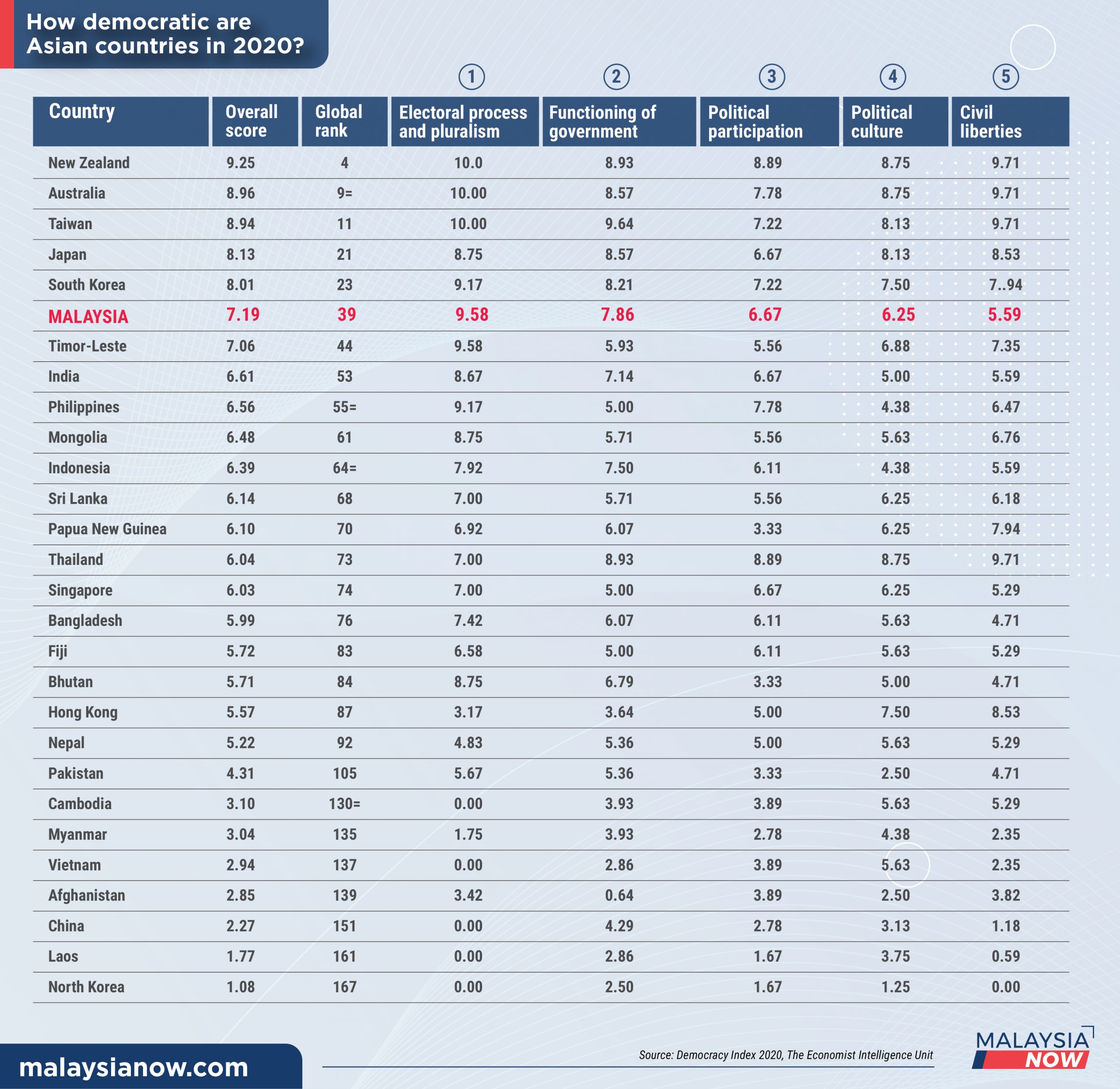Malaysia jumps 4 spots to highest yet in global democracy index
Despite the political crisis of 2020, Malaysia did well in terms of electoral process and pluralism, and performed better than many large democracies.
Malaysia’s democractic ranking in 2020 from among a list of 167 countries jumped by four spots from 43rd in 2019 to 39th, according to The Economist’s latest global index on democracy.
Malaysia’s score inched up to 7.19 last year from 7.16 in 2019, which had been hailed as its best ever.
The latest survey acknowledged the political crisis of February last year and the change of government that followed, saying political stability “has deteriorated since the departure of Mahathir Mohamad as prime minister in March 2020”.
“However, improvements in electoral process and pluralism have resulted in more democratic political institutions,” the report said.
Among Asian countries, the Economist survey ranked Malaysia at sixth spot behind New Zealand, Australia, Taiwan, Japan and South Korea.
The index classifies countries into four types: full democracy, flawed democracy, hybrid regime, and authoritarian regime.
Malaysia is among 52 countries lumped in the “flawed democracy” category, alongside major democracies such as the US and France.
But Malaysia came out tops among Asian countries labelled as “flawed democracy”, even outscoring Japan and South Korea – two countries now upgraded to “full democracies” – in terms of electoral process and pluralism.
In contrast, neighbours Singapore and Indonesia are ranked 15th and 11th in Asia. Globally, Singapore is placed at 74th position while Indonesia is placed 10 spots above.
Meanwhile China, Laos and North Korea are considered the region’s worst when it comes to democratic practices.
The report said the year 2020 showed the worst average global score since the index was first produced in 2006, adding that restrictions on personal freedoms due to Covid-19 measures had also played a part.
“The 2020 result represents a significant deterioration and came about largely – but not solely – because of government-imposed restrictions on individual freedoms and civil liberties that occurred across the globe in response to the coronavirus pandemic,” it said.
It found that only about half (49.4%) of the global population “live in a democracy of some sort”, while 8.4% live in a “full democracy”, up from 5.7% in 2019 due to improvements among Asian countries.
At the top of the list is Norway, followed by Iceland, Sweden, New Zealand and Canada. The UK is placed at 16th place, while the US is at 25th.
India regressing, Taiwan improving
Asian countries that continued rapid deterioration in their democractic scores included India – often hailed as the world’s largest democracy – which ranked 53rd in 2020 from 27th six years earlier.
This was attributed to the policies of the Hindu-nationalist government under Prime Minister Narendra Modi, who was re-elected for a second term in 2019.
“The increasing influence of religion under the Modi premiership, whose policies have fomented anti-Muslim feeling and religious strife, has damaged the political fabric of the country,” the report said, referring to the outrage on an amendment to its citizenship laws seen as a step towards boosting the Hindu population.
But the biggest leap among Asian countries is Taiwan, which jumped 20 spots to place 11th in the world.
The Economist index, which was this year titled “In sickness and in health?”, said Taiwan successfully handled the Covid-19 pandemic, and praised the “strong response” of President Tsai Ing-wen.
“Taiwan avoided sweeping lockdowns and restrictions on internal movement. In turn, the Taiwanese public demonstrated a great willingness to cooperate with healthcare authorities in complying voluntarily with quarantine and social-distancing restrictions, including stringent track-and-trace requirements,” it added.
The survey ranks countries based on scores in five areas: electoral process and pluralism, functioning of government, political participation, political culture, and civil liberties.
Countries are also measured on the fairness of national elections, security of voters, influence of foreign powers on government, and the capability of the civil service to implement policies.
Subscribe to our newsletter
To be updated with all the latest news and analyses daily.

